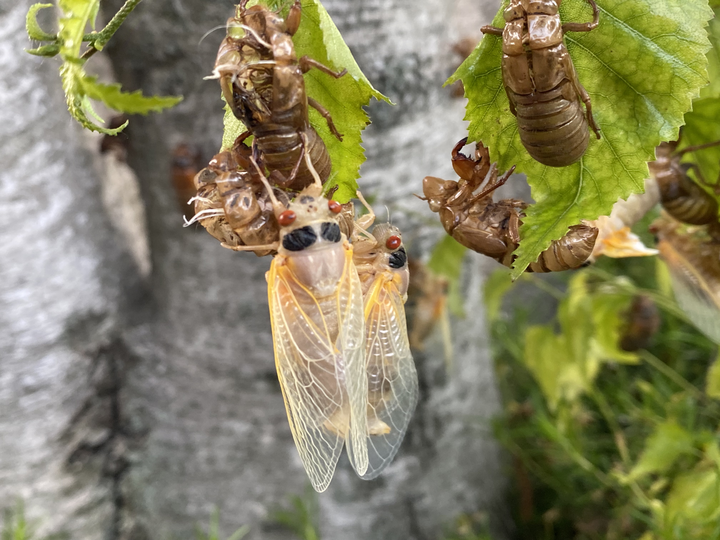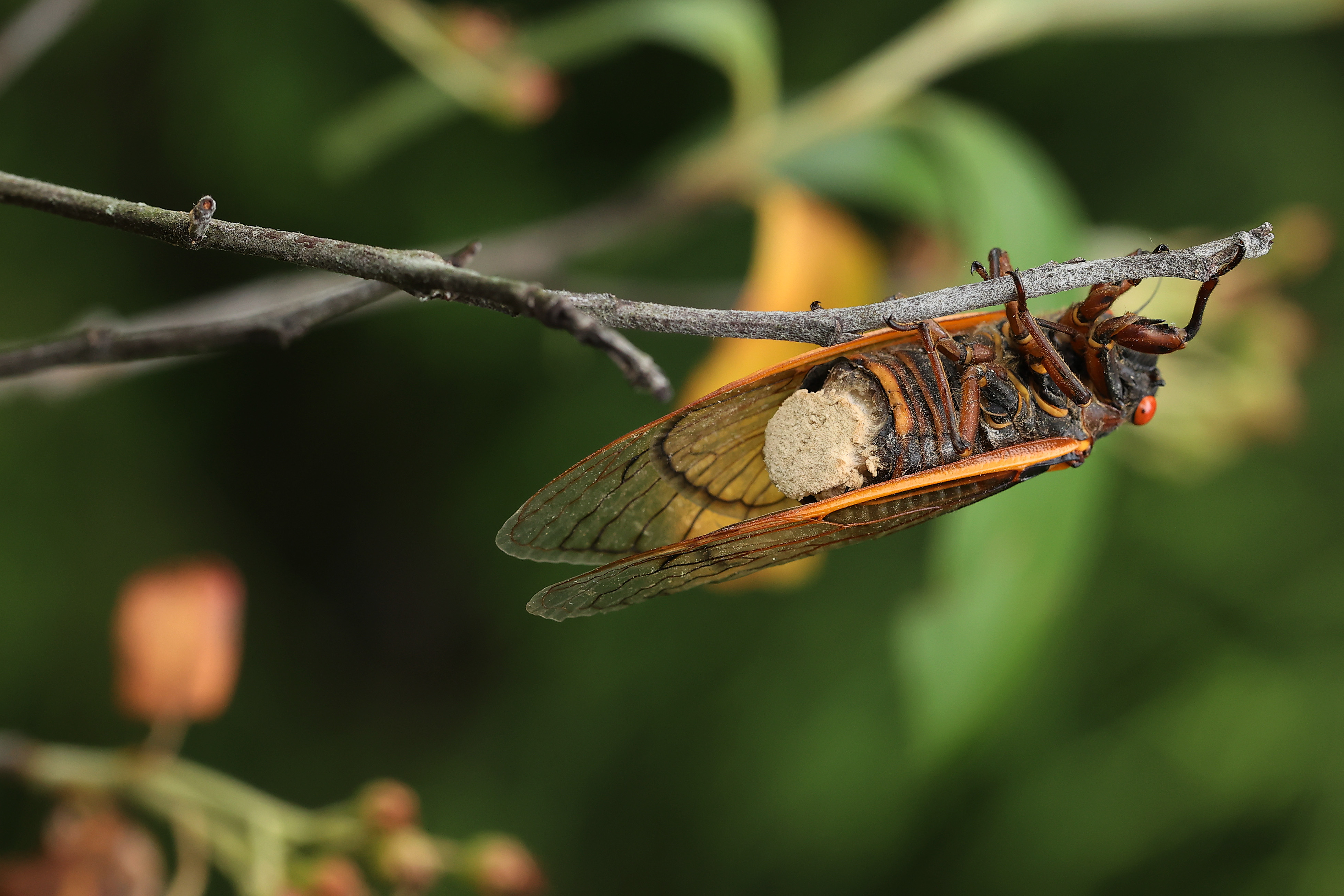An incredibly rare blue-eyed cicada found in Chicago’s suburbs will be preserved at the Field Museum, with scientists aiming to gain a greater understanding of the creature’s unique mutation.
According to officials, the blue-eyed cicada from Brood XIII, described as "one-in-a-million" by the museum, was found by a suburban Wheaton family. It will be the first of its kind to be preserved within the museum's collections.
“I have been in Chicago for five periodical cicada emergences of our Brood XIII, and this is the first blue-eyed cicada I have seen,” Jim Louderman of the Field Museum said in a statement.
As part of the insect’s preservation, the blue-eyed cicada will be “pinned” at the Field Museum, allowing scientists to preserve it, display it to the public, and ultimately to perform a series of tests. Those tests will include sequencing the cicada’s DNA to learn more about the mutation that allowed it to have blue eyes, according to officials.
The Bailey family from suburban Wheaton found the insect thanks to their 4-year-old son Jack. After releasing it, the family found out how rare a blue-eyed cicada is, and 14-year-olds Caroline and Addison Bailey found it again using flashlights and took it into captivity.
Cicadas have a very short lifespan after they emerge from the ground, and the insect died shortly after it was discovered by the family.
For those who won’t be able to see the insect be pinned, it will be on display during weekly events as part of the museum’s “Science Hub,” which will run through the end of June.
Cicadas Illinois
What’s more, residents will be able to pin their own cicadas to create shadowboxes and to learn more about scientific preservation at an event on May 29. Tickets are now available on the museum’s website.
The cicada emergence is expected to last into the early part of summer, with billions emerging from the ground all over the Midwest.
Feeling out of the loop? We'll catch you up on the Chicago news you need to know. Sign up for the weekly Chicago Catch-Up newsletter here.



